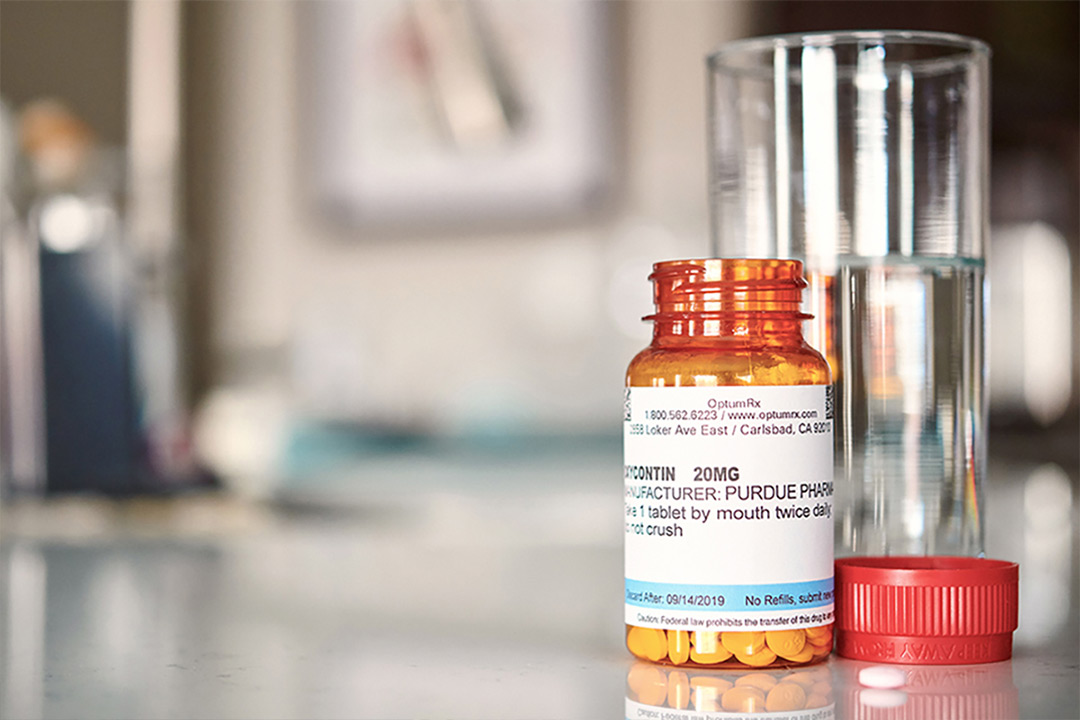Rheumatic diseases we care for
Some health conditions that your Optum rheumatologist provides care for include:
- Ankylosing spondylitis, a problem with the spine that can cause pain, stiffness and a hunched posture
- Gout, a type of arthritis that causes sudden, severe attacks of pain, tenderness, redness, warmth and swelling in some joints
- Lupus, when the immune system attacks the body
- Osteoarthritis, a form of arthritis caused by the wear and tear of joints
- Osteoporosis, when the bones become brittle
- Rheumatoid arthritis, a painful, chronic inflammatory form of arthritis that can destroy joint tissue
- Scleroderma, when the tissue in your body becomes hard or thick, which can affect the skin, blood vessels and organs
- Vasculitis, inflammation of the blood vessels
Rheumatology and arthritis FAQ
There are many types of arthritis, but the most common include:
- Fibromyalgia
- Gout
- Lupus
- Osteoarthritis
- Psoriatic arthritis (a joint swelling disease with skin rash)
- Rheumatoid arthritis
Some symptoms of arthritis include:
- Joint pain
- Reduced range of motion
- Stiffness
- Swelling and redness
There is no cure for arthritis, but it can be managed effectively with medications and making changes in your life.
Some ways to manage flares for conditions like rheumatoid arthritis include:
- Adjust the medicines you take
- Manage stress
- Rest
- Recognize early signs
- Make lifestyle changes (for example, diet and exercise)
Gout is a type of arthritis that causes inflammation.
Common symptoms of gout
- Extreme joint pain, especially in the big toe (this is called podagra)
- Swelling, redness and warmth in the affected joint
- Tenderness — even the weight of a bed sheet can be painful
- Limited range of motion
- Lingering discomfort after an attack
- Flares that may last days to weeks and recur over time
Gout can be managed by medications and making lifestyle changes:
Medications
- NSAIDs (for example, ibuprofen, naproxen, indomethacin)
- Colchicine — lowers inflammation if taken early during a flare (a period when symptoms worsen)
- Corticosteroids – by mouth or injected to lower inflammation
- Uric – acid-lowering drugs
Lifestyle and home remedies
- Stay hydrated — drink plenty of water.
- Think about making changes to what you eat. Stay away from purine-rich foods (red meat, shellfish, alcohol).
- Manage your weight.
- Use cold compresses to ease pain.
- Eat cherries or drink tart cherry juice — these may help lower uric acid.
- Think about trying natural remedies. Some people find magnesium, ginger, celery seeds and nettle tea to be helpful.
Lupus is a chronic (long-term) autoimmune disease where the immune system (the part of your body that protects you from illness) mistakenly attacks healthy tissues and organs. It can affect many parts of the body, including the skin, joints, kidneys, heart, lungs, brain and blood cells.
Common symptoms include:
- Butterfly-shaped rash across cheeks and nose
- Chest pain (pleurisy)
- Dry eyes or mouth
- Fatigue
- Fever
- Hair loss
- Joint pain, stiffness, and swelling
- Kidney issues (lupus nephritis)
- Memory loss or confusion
- Mouth or nose sores
- Raynaud’s phenomenon (fingers/toes turning white or blue in cold/stress)
- Seizures or neurological symptoms
- Shortness of breath
- Skin rashes or lesions, especially after sun exposure
While there’s no cure for lupus, it can be managed with a combination of medicines and changes you can make in your life:**
Medications
- NSAIDs (for example, ibuprofen) for pain and inflammation
- Antimalarials (for example, hydroxychloroquine) lower flares and skin symptoms
- Corticosteroids (for example, prednisone) control inflammation
- Immunosuppressants (for example, azathioprine, methotrexate, mycophenolate) for severe organ involvement
- Biologics (for example, belimumab, rituximab) target specific immune pathways
- Other medicines — anticoagulants, antihypertensives, anticonvulsants, statins and vitamin D
Lifestyle and self-care
- Stay away from the sun. Wear protective clothing and sunscreen.
- Exercise on a regular basis. This helps with feeling tired and joint health.
- Eat balanced meals, especially heart-healthy foods
- Don’t smoke.
- Track symptoms and medicines using a journal or app.
- Get regular checkups and make changes to your care as needed.
Fibromyalgia happens when your nervous system processes pain in an abnormal (unusual) way. It causes muscle pain and can make you feel tired. It often develops after physical trauma, surgery, infection or significant psychological stress.
There is no cure for fibromyalgia. But you can take care of your symptoms through:
Medications
- Pain relievers
- Antidepressants
- Anti-seizure drugs
Therapies
- Acupuncture
- Chiropractic care
- Cognitive behavioral therapy, which helps take care of stress and emotional impact.
- Massage therapy
- Occupational therapy, which helps you relearn everyday activities
- Physical therapy, which improves strength and flexibility.
Lifestyle and self-care
- Get regular exercise with low-impact activities. Think about walking, swimming, yoga and tai chi.
- Practice good sleep hygiene. Follow a normal sleep schedule and limit naps. Create a restful space for sleep.
- Take steps to handle stress with mindfulness exercises, meditation and deep breathing.
- Eat a healthy diet. Some people feel better by eating low-FODMAP (FODMAPs are types of carbohydrates in foods), Mediterranean or gluten-free diets.
- Join a support group to get help and learn how others deal with their symptoms.
Helpful resources

Article
What is chronic pain?
Chronic pain can affect physical, emotional, and mental well-being. Learn ways to take care of pain that can offer hope if you’re seeking relief.

Article
How to get a good night’s rest when you have arthritis
Arthritis joint pain can make it hard to sleep well. Here are some practical tips to help you get more rest and feel better.

Article
Why medication reviews are important
It’s easy to get comfortable with your medications, but reviewing your prescriptions on a regular basis should be a key part of your health care.
*Rheumatology care services vary by location. Check with your doctor’s office or health plan for specific information.
**Please note that these are general guidelines and should not be considered medical advice. For advice specific to you, please consult with your care provider.
Optum arranges for or provides medical and other clinical services in accordance with laws in each state it operates. Physicians or providers referenced on this website are to those who are either part of independent practices or to those medical practices managed by or owned, where permitted, by Optum. In all circumstances, physicians and other licensed professionals have complete authority for all medical decision-making and patient care. Optum does not determine or set the methods, standards or conduct of the practice of medicine or health care provided by any of the practices or their physicians or other licensed professionals.




